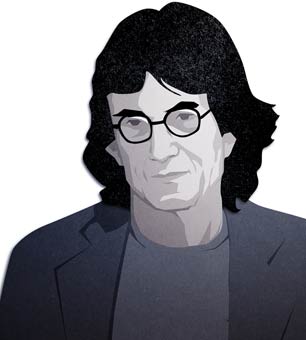Part of the Series
Disposable Futures
Did you know that Truthout is a nonprofit and independently funded by readers like you? If you value what we do, please support our work with a donation.
 Henry A. Giroux. (Image: Jared Rodriguez / Truthout)English and Cultural Studies professor, Henry A. Giroux, talks about the challenges facing the Left – or all who care about democracy and the future of the common good – in a neoliberal political economy.
Henry A. Giroux. (Image: Jared Rodriguez / Truthout)English and Cultural Studies professor, Henry A. Giroux, talks about the challenges facing the Left – or all who care about democracy and the future of the common good – in a neoliberal political economy.
To see more articles in the Disposable Futures series, click here.
To read more articles by Henry A. Giroux and other authors in the Public Intellectual Project, click here.
We’re living in a time of extremes: extreme weather conditions, extreme political polarization, and extreme power and income inequality. How did we get to this point? It certainly didn’t happen overnight. Rather, over the course of the last 30 years, the erosion of social contract the New Deal ushered in has reached a stage such that the United States of America is no longer a democratic republic – or a polity concerned with a shared future.
Henry A. Giroux, a professor of English and Cultural Studies at McMaster University in Hamilton, Ontario, Canada has written extensively on the way in which the political economy has been reconfigured from one that guaranteed citizens a social safety net and promoted paths to a middle class way of life, to a system where a neoliberal oligarchy has accumulated a preponderance of wealth and power that makes democracy impossible, while simultaneously pushing politicians to chloroform the New Deal and Great Society era reforms. The result of this long march to change the fundamental agreement citizens had with their government is a middle and lower class that are compliant, afraid, desperate, and powerless in society- or dispoable. In other words, neoliberal ideologues have squashed democratic movements that use political processes to create a more just and more economically equitable society.
This political and economic movement, according to Giroux, started with the presidency of Ronald Reagan and Margaret Thatcher’s Conservative Party in the United Kingdom. Both pushed an agenda to decrease role of the social safety net in society and promote the belief that there is no society (or social class); only individuals. This extreme form of individualism coupled with the dismantling of the welfare state for the middle and lower classes (yet, at the same time, strengthening socialism for the wealthy and the powerful) has created a political climate where people are afraid to question authority – except when such questioning comes from the right and is directed at the welfare state, liberals and progressives. Certainly, there’s been a push back against the forces of neoliberalism. The Occupy Wall Street movement was a start, and many like Jon Stewart, John Oliver, and Stephen Colbert have channeled political critique into a form of “fake journalism” that is highly entertaining, but inadequate alone for the long game of political change.
Many of these issues are addressed in a longer form by C.J. Polychroniou in his interview with Henry Giroux, but in this wide-ranging Truthout Interviews, Giroux touches on some points he made in his discussion with Polychroniou and also focuses on social media, democracy, and the political left.
A terrifying moment. We appeal for your support.
In the last weeks, we have witnessed an authoritarian assault on communities in Minnesota and across the nation.
The need for truthful, grassroots reporting is urgent at this cataclysmic historical moment. Yet, Trump-aligned billionaires and other allies have taken over many legacy media outlets — the culmination of a decades-long campaign to place control of the narrative into the hands of the political right.
We refuse to let Trump’s blatant propaganda machine go unchecked. Untethered to corporate ownership or advertisers, Truthout remains fearless in our reporting and our determination to use journalism as a tool for justice.
But we need your help just to fund our basic expenses. Over 80 percent of Truthout’s funding comes from small individual donations from our community of readers, and over a third of our total budget is supported by recurring monthly donors.
Truthout has launched a fundraiser to add 310 new monthly donors in the next 4 days. Whether you can make a small monthly donation or a larger one-time gift, Truthout only works with your support.